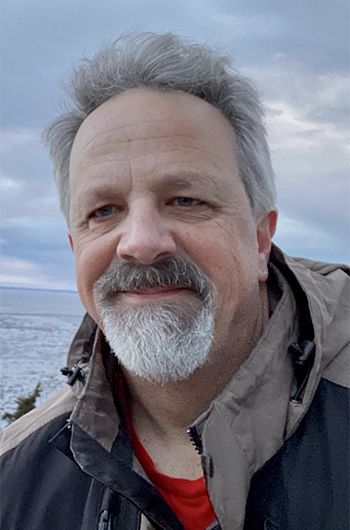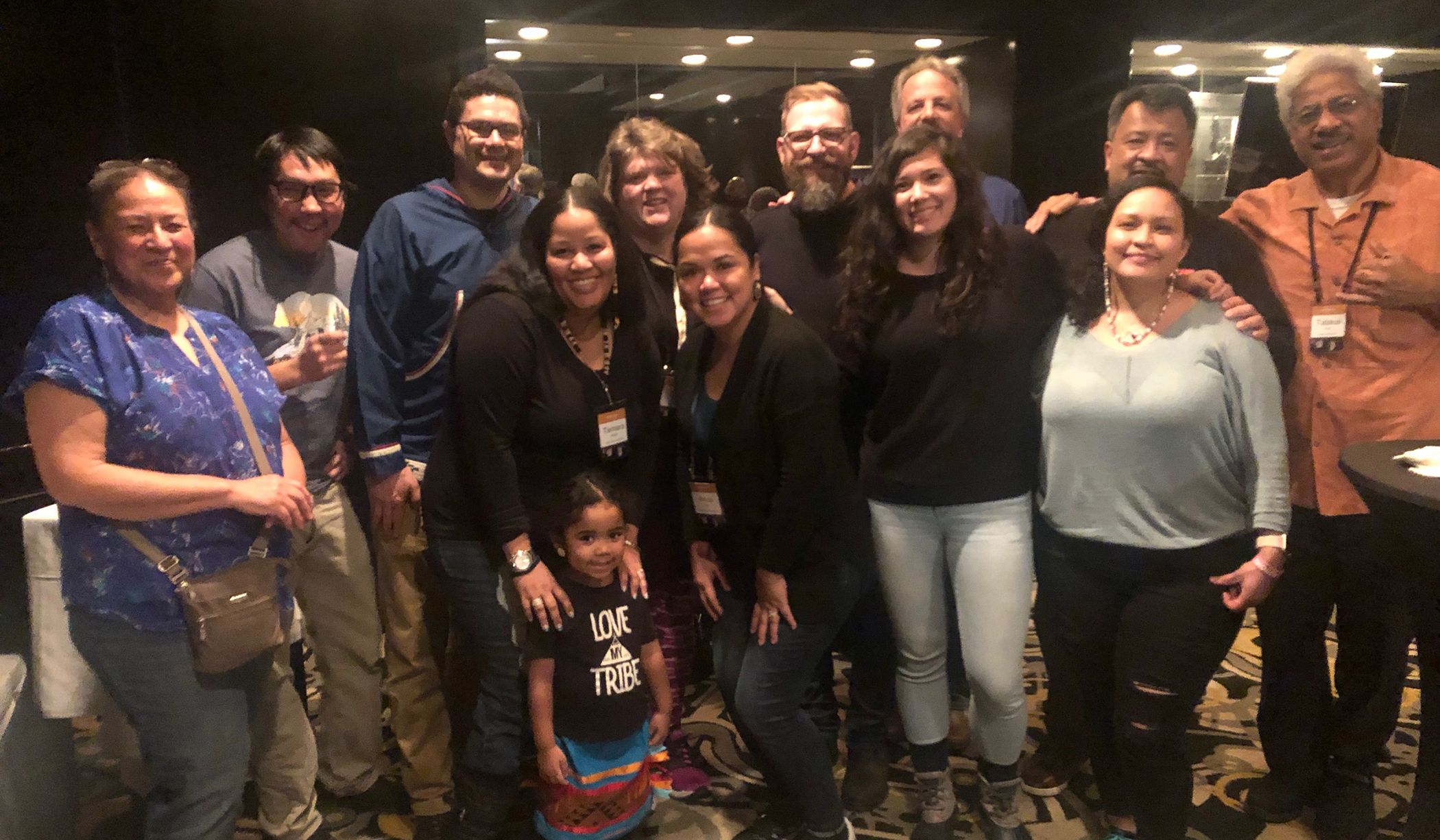Interview with the Rev. TJ Smith, President of the Indigenous Ministers Association
 The Rev. TJ Smith is President of the Indigenous Ministers Association (IMA) and Pastor of New Song Covenant in Anchorage, AK. In a recent interview, he shared insights on the challenges and opportunities facing Indigenous people.
The Rev. TJ Smith is President of the Indigenous Ministers Association (IMA) and Pastor of New Song Covenant in Anchorage, AK. In a recent interview, he shared insights on the challenges and opportunities facing Indigenous people.
What is your life like in Anchorage?
As we live here, we see Creator (God) in all we see. As I fish, I give thanks to the Creator that allows us to catch it, share it with our family and eat it. Currently the salmon are starting to run, and I am fishing for my family and elders.
I am also currently re-learning my Lakota language. I am at least the fourth generation away from the last Lakota speaker in my family. As I learn it, I find myself at peace with it. I was created as a Lakota. As I learn my language it helps me become more of who I was created to be, who I am.
My goal is to learn one to two words each week and use them in my prayer and everyday life. Even my dogs are learning it as I speak to them. An example is I tell our dogs hiya and wasté all the time (no and good).
What can you help us understand about indigenous people?
We, Indigenous people, are a people that are often unseen, invisible to most people. Often, we are left out of the conversations about racism or injustice that has or is being done to people of color.
In American history, and the founding documents of the United States, blacks were considered 3/5 human and Native Americans were considered “merciless savages.”
There are over 570 nations in the USA and Canada. Historically, Canadian experiences are different because of British influence. The Canadian Federal Government has given a public apology to the Metis, First Nation and Inuit people. Here in the United States, Doctrine of Discovery was practiced in the early days of Europeans coming to these lands. In 1492, the Pope gave Portugal the Doctrine of Discovery—and other nations accepted it and used it in claiming lands that we already occupied by Indigenous people around the world. It was used as people “used” the Bible to justify their colonizing lands as a way of finding a new Promised Land, bringing salvation to heathens and having God’s blessings in it all.
In the times of the “explorers” they allowed anyone to claim any lands as they saw fit for the flag of the country they were under. If they got to the mouth of a river and planted their nations flag, that river and all tributaries and the land where then that country. It continues to impact policy and our world today.
We can see current examples in pipelines at Standing Rock, water rights in California where a nation lost the federal recognition in 1982 as the Shasta dam wiped out their land and sacred land in 1941. We can see it in Hawaii with the desire to build a 15th telescope on sacred ground at Mauna Kea. Even as recent as the Governor of North Dakota telling the nine reservations to open their borders to let the traffic flow free although they had closed the borders of the reservation to protect the people from COVID-19.
We are thankful that the Evangelical Covenant Church is formally working to have the repudiation of the Doctrine of Discovery in Gather 2021. Philimayé (thank you) to Paul Robinson of LMDJ and Lenore Three Stars for your unending work in getting this repudiation done.

What are the needs of your community?
Many times people see a movie or read a book and think, “I know the people and the cultures.” Or because they understand one Indigenous people they think they understand all Indigenous people.
Of the 570 Nations in Canada and the United States, each Nation is independent, each has their own language, culture, traditions, foods, regalia, etc. Do not try to be an expert after reading one book or watching one movie. Keep learning. If you go and serve on a reservation, go asking, not assuming you know what they need.
Revelation 7:9 (CEV) is my heartbeat: “After this, I saw a large crowd with more people than could be counted. They were from every race, tribe, nation and language, and they stood before the throne and before the Lamb.”
I long to see all nations, all tribes, all tongues worshiping Jesus each as we are created to be. Worship, as you are created to worship. And welcome others to do the same. For myself, as an Indigenous person I do not separate who I am, my culture from my faith. It is an Indigenous mindset. Everything we do is sacred, our life and relationship with Wakan Tanka, Creator, is integrated. All part of who we are.
See us. We are an invisible people. We may not be loud, but we are striving for equality and peace. Much has been taken from us, before Columbus landed on North America it was 100 percent Indigenous land, now we are less than 4 percent Indigenous land being put on a reserve or reservation with 20 percent of that being “owned by non-Indigenous people.”
Walk a mile in our shoes. When everything has been taken away from you, language, culture, traditions, traditional food that we can no longer gather or hunt … Do not judge us but listen to our stories. It will take us time with you as every treaty that was signed in Canada and by the United States government has been broken, so we rightfully do not trust those in authority or those outside our people and community.
What can you tell us about the IMA?
There has been an indigenous voice at the table of the Ethnic Association of the ECC since 2004. Now we officially have a vote at the table, along with the original Association AAMA, then CAPA and ALIPE. IMA was officially recognized by the Executive Ministers of the ECC in March of 2020.
We currently have 14 nations as part of IMA. We gather to learn to drum together, be in community as Indigenous people together. At Midwinter 2020, we had our first association dinner to gather together. It was encouraging to have Indigenous people come together. Though we are each unique, we have some common traditions; to share our stories, to hear our elders share their wisdom and to affirm our cultures.
We have often been told by some of our families, by the culture of the United States and Canada, to be ashamed of being who we are created to be. At IMA we are striving to be who we are created to be through the use of sharing our languages, cultures and traditions—all while we serve the Creator together in the ECC.
What resources would you recommend for those who want to learn more?
Listen to Supaman: He is from the Crow Nation and does hip-hop and rap. He is a follower of Christ and shares his culture through dancing in full regalia as he shares his humor, Scripture and injustices in his songs.
Listen to One World: We Are One, a group of singers and rappers, all indigenous artists.
Listen to Broken Walls, it is a Mohawk worship group. They do some songs in their language and use the drum for worshipping the Creator.
Some books to read include:
- “Crazy Horse and Custer” by Stephen Ambrose. A historical novel that compares the mindset of Crazy Horse and Custer and the cultural differences.
- “Unsettling Truths” by Mark Charles and Soong-Chan Rah. A great book about the Doctrine of Discovery and the damage it has and continues to do to People of Color.
- “Neither Wolf nor Dog” by Kent Nerburn (also made into a movie). It gives great insight to how an Indigenous elder see the world.
- “One God Many Tribes” and “Rescuing the Gospel from the Cowboys” by Richard Twiss, an Indigenous Theologian.
- “Jesus and the Eskimo” by Fred Savok.
In film:
“Indian Horse” where a Canadian First Nations boy survives in a residential school in the 1970s and the impact of it on his life.
Some online resources to check out include:
- Murdered and Missing Indigenous Women
- The Fullness Thereof: How Indigenous worldviews offer hope to a besieged planet
- ECC history in Alaska: http://www.alaskool.org/native_ed/research_reports/by_one_spirit/byonespirit.htm
- ECC Covenant Companion “The Alaska Story: https://covenantcompanion.com/2012/05/01/the-alaska-story/
- ECC Alaska Conference: https://www.alaskacovenant.org
Check your March/April Covenant Companion for recent stories of Indigenous Ministers
Also please contact TJ Smith for further conversation and to learn from his stories.